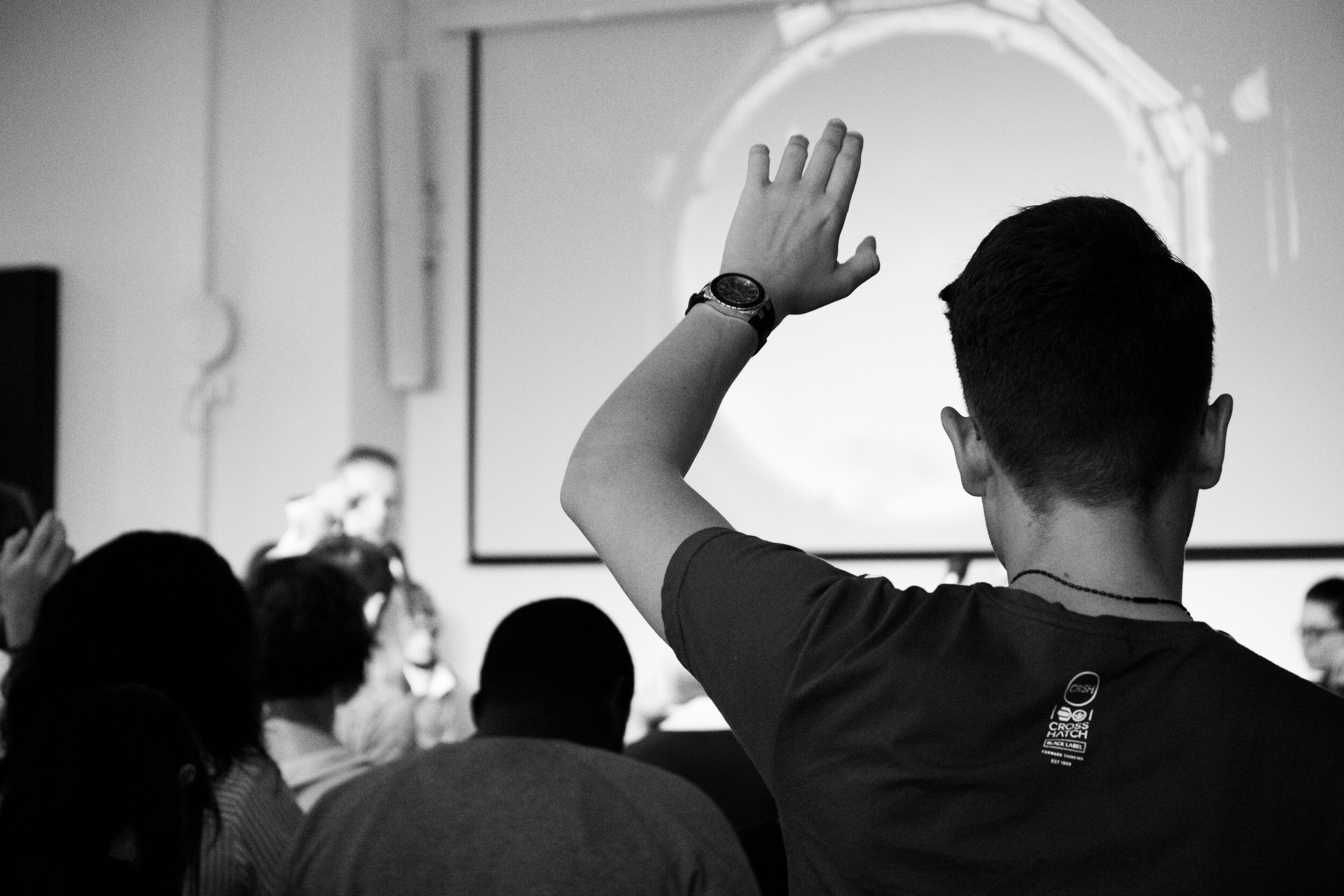Graduate Personal Statement Help Course

Video Course: Graduate School
We’ve created this online video help course to help give you the best start to your essay writing process! Feel free to read more on each topic from these videos in the lessons below as well.

Lesson 1: Introduction
Applying to graduate school is very different from applying to medical, law, or business school and nothing like applying to college. How do I know? I did it, many years ago, and almost made the worst possible mistake.

Lesson 2: Getting Started
The statement of purpose should focus on your academic interests in graduate school and plans after you graduate; spend much less time describing how you reached the point of wanting to go to graduate school and highlight only those experiences that illustrate your potential to succeed.

Lesson 3: Why Grad School?
Before writing anything, you must first figure out and articulate to yourself exactly why you want to go to graduate school. Loving a particular subject isn’t enough, nor is simply wanting to learn more. Those reasons are too general. You also want to avoid sentimentality: Love and passion won’t be enough to sustain you through the trials of a master’s or doctoral program.

Lesson 4: Audience
Your application will be read by the faculty members in the department or program to which you are applying. (Undergraduate admissions, in contrast, relies on administrators who focus on admissions across the entire college or university.) Scholars in the field will evaluate your preparation and potential for the pursuit of a degree in their discipline.

Lesson 5: Brainstorming
Graduate programs seek students who can demonstrate certain key traits. You won’t necessarily possess all of these, and certainly not in equal measure, but think about which resonate with you. Which ones do you feel like you can claim for yourself? And what evidence can you offer to support that claim?

Lesson 6: Elements of the Statement
Your statement of purpose should answer five basic questions:
What do you want to study?
What questions within your field do you want to ask and answer?
What experience do you have in this field?
Why is this program a good fit?
What do you plan to do with your degree?

Lesson 7: Academic & Professional Background
Give the reader, in the form of a coherent narrative, details about your academic and professional background as well as notable accomplishments that demonstrate your preparation for the degree you seek. Remember, your statement is very much akin to an academic essay: It has a thesis (I’m suited for your graduate program) that must be argued with evidence. You will need to describe the skills you have learned from academic, lab, research, or work experiences. It’s essential to give specific examples and illustrate the points you are making. The adage applies here: Show, don’t tell.

Lesson 8: Plans for Graduate School
Your plans for graduate school should naturally lead to a discussion of your fit for a particular program (see below). Think of these topics as paired: First, you need to detail what you plan to study and research; second, you should explain with whom plan to study and research. That second part will vary for each school to which you are applying. Here’s where you need to show that you have specific (but not narrow) interests in your field and they align with the faculty members in the department.

Lesson 9: Fit
Graduate programs seek students who can demonstrate certain key traits. You won’t necessarily possess all of these, and certainly not in equal measure, but think about which resonate with you. Which ones do you feel like you can claim for yourself? And what evidence can you offer to support that claim?

Lesson 10: Professional Goals
In a short paragraph, only five or six sentences, sketch out your professional goals. If you are applying to a master’s program, do you intend to pursue a doctoral degree? If you are earning a doctoral degree and have your sights set on becoming a professor, well, beware. The job market is frankly horrific. Be humble and show some flexibility. Writing “I plan to secure a tenure-track job at a Research I university and focus on publishing” is not a good approach, because it’s just not realistic.

Lesson 11: Structuring the Statement
Now that you have answered the questions, “why graduate school?” and “what will I do in graduate school?” plus identified your skills and detailed your background, plans, goals, and fit, you are finally ready to begin structuring your statement.

Lesson 12: Common Approaches
You’ll read conflicting advice about structuring your statement chronologically. In general, the best statements simply read smoothly and easily without jumping around. Especially if you are applying straight from undergrad, or with only a few years of entry-level work experience, chronology serves you best. You want to show the continuity of your interests and efforts over time as well as the growth of your skills and experience. This kind of narrative structure--a kind of professional biography--suggests that you have a serious, sustained investment in the field.

Lesson 13: Purposeful Paragraphs
Each paragraph should focus on a specific quality or characteristic, something you’ve identified as key to explaining your background, experience, and suitability for graduate study. The structure of paragraphs should be the same: Describe an event or experience that illustrates a particular quality, then offer more details that serve as evidence, and conclude by explaining why the event or experience was significant not in terms of how you felt but what you learned. Basically, paragraphs in the body of your statement boil down to explaining what you did, what you learned, and why it matters in preparing you for graduate school.

Lesson 14: Introductions
You may have been taught to write with a “hook,” something catchy or interesting to engage the reader’s attention. Don’t do this. Not for a graduate school statement of purpose and certainly not for any of your graduate seminar papers. Instead, announce yourself as if you were introducing yourself to your potential graduate advisor, because that’s exactly what you’re doing. Be professional.

Lesson 15: Conclusions
Conclusions have a purpose: They are to explain your career plans beyond graduate school. Many if not most PhD applicants will imagine becoming a professor. That’s fine, but you need to convey that goal with a healthy dose of humility. Faculty members know that securing a tenure-track job is increasingly difficult; they do not want to deal with your unrealistic expectations.

Lesson 16: Style & Mechanics
The tone of your statement should be, above all, professional. Consider the statement as a second writing sample. Strive for sobriety and precision. Use the terminology of your discipline but eschew jargon and don’t try to impress anyone. Avoid the words “interesting” and “important.” Eliminate adverbs. Above all, you want your statement to be readable.

Lesson 17: Tricky Topics
Maybe your transcript is unblemished and your testing exceptional. You still might need to think critically about your academic record. When reading your statement, faculty members will ask themselves, “Are you prepared to succeed in graduate school?” So think seriously about the degree requirements and your preparation. If the program to which you are applying has a language requirement, for example, and the last time you studied a foreign language was in high school, then that’s a potential problem.

Lesson 18: Pitfalls
Scholars have identified “kisses of death” in a statement of purpose for study in psychology, counseling, or clinical work. Their advice applies broadly to all personal statements. Here are some of their key findings and how they relate to other fields of study:

Lesson 19: Final Checklist
Once you’ve drafted, redrafted, written, rewritten, revised, edited, and polished your statement, take a few days away from it. You’ll return clear-eyed and can take a fresh look at your essay. Then read your statement one last time--strategically, with this checklist in mind:
